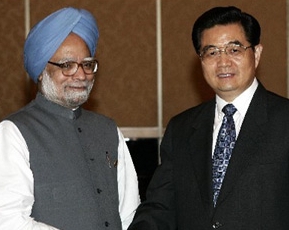On Dec. 18, President George Bush signed into law the United States-India Peaceful Atomic Energy Cooperation Act (H.R. 5682). On Dec. 13, Chinese Foreign Ministry spokesperson Qin Gang had resolved months of ambiguity by indicating Beijing's acceptance of the proposed U.S.-Indian nuclear deal. In response to a question about the proposed legislation, Qin Gang said: "We consider the cooperation between countries to use nuclear energy for peaceful purposes will be beneficial to maintain the principles and effectiveness of international nuclear nonproliferation." U.S. President George W. Bush and Indian Prime Minister Singh announced in July 2005 they would pursue a bilateral civilian nuclear cooperation agreement. The aim was to grant India unprecedented exemptions in U.S. law and international export rules to allow for international nuclear trade to India. Qin's statement suggests that the Chinese government will not seek to block the proposed exemption to the Nuclear Supplier Group (NSG) guidelines required to implement the U.S.-Indian nuclear accord. Under the agreement, the United States will provide civilian nuclear technology and materials to India in exchange for India's opening its civilian nuclear sector to international oversight. A NSG waiver is required because the Non-Proliferation Treaty, which India has refused to sign, generally prohibits signatories such as the United States from providing assistance to the nuclear programs of non-signatories. Observers had speculated that Beijing, to disrupt U.S.-Indian ties and impede Indian's nuclear weapons program, would attempt to scuttle the deal by withholding its approval within the NSG, which operates by consensus.
China’s Acceptance of U.S.-India Nuke Deal Shows Improved Sino-Indian Ties

